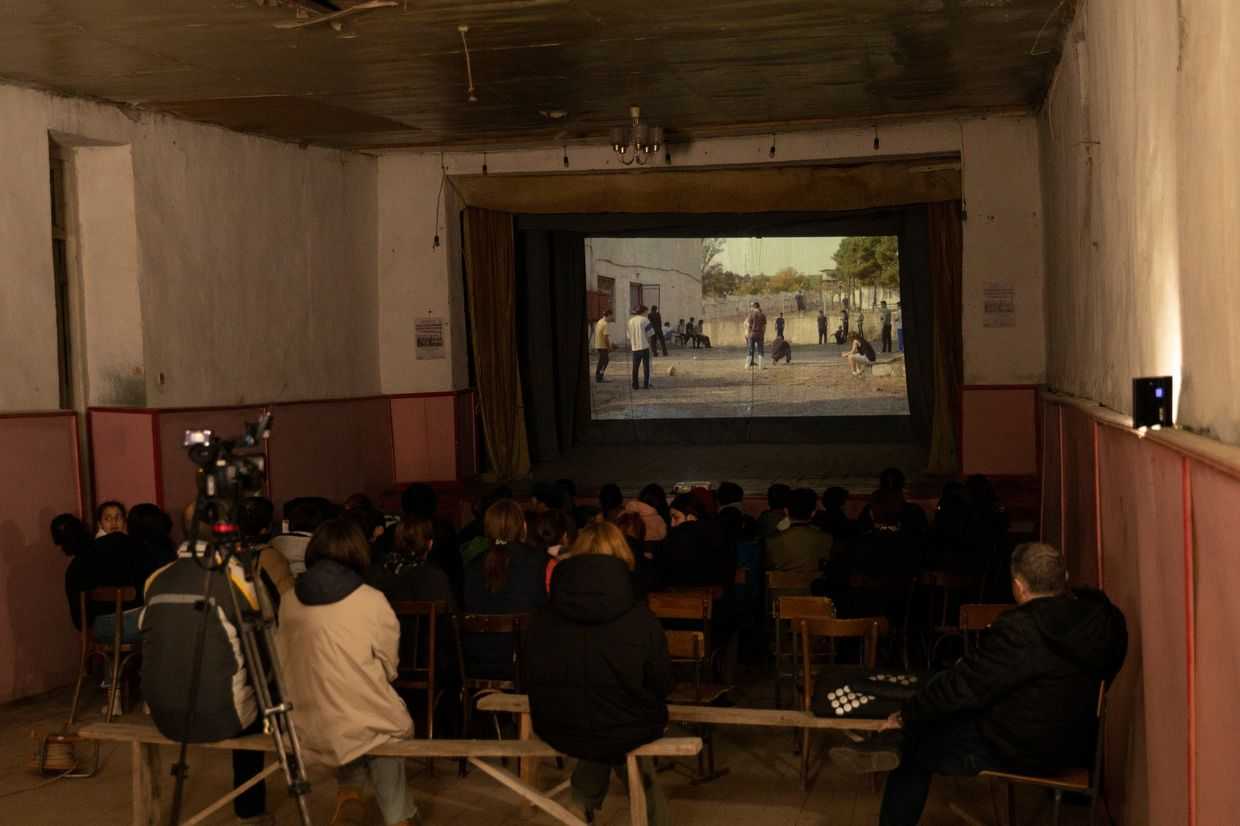
Five members of Georgia’s main parliamentary opposition faction, the United National Movement (UNM) — Strength in Unity, were ejected from the bloc on 17 May, after casting the deciding votes electing the ruling party’s preferred candidates to Georgia’s High Council of Justice.
The High Council of Justice (HCOJ) is an independent agency responsible for overseeing Georgia’s judiciary. Its reform is seen as being important to Georgia’s EU membership candidacy bid.
On Thursday, the ruling Georgian Dream party’s parliamentary majority of 84 was six votes short of the threshold required to confirm the three candidates supported by the party to the High Council of Justice.
While the vote was cast by secret ballot, unexpected results of over 90 votes for each confirmed candidate triggered anger and speculation about collusion with the ruling party amongst opposition MPs, with some leaving the plenary session in protest.
Following media reports and several hours of speculation about which MPs had lent their support to the ruling party, opposition bloc MPs Nika Machutadze, Nato Chkheidze, Rostom Ckheidze, Dilar Khabuliani, and Bachuki Kardava confirmed that they had voted for the Georgian Dream-endorsed candidates.
The UNM swiftly announced that they were ‘ceasing cooperation’ with those faction members, who they deemed had helped reinforce the alleged ruling-party-associated ‘judicial clan’.
The HCOJ is made up of nine judges and six non-judge members, meaning that non-judge members’ votes can be critical to reaching the ⅔ majority required to pass key decisions. Proposed reforms have suggested that a ⅔ majority would be required in both the judge and non-judge groups for some decisions, a move which Georgian Dream has not ruled out supporting, but which its critics claim it is countering by electing individuals loyal to the party to the council.
While some of the bloc’s departing members claimed that the vote was a result of ‘miscommunication’, opposition faction leaders denied that this was the case.
The UNM also underlined that those who voted in support of the elected HCOJ candidates were only members of their wider coalition, and not of the party itself.
United National Movement — Strength in Unity emerged as Georgia’s largest opposition faction after the October 2020 elections, with 36 out of 150 seats in parliament at the time, and has been dominated by the UNM from its inception.
EU preconditions of judicial reform
The High Council of Justice should have 15 active members at any given time, but has been short of five members and had only one non-judge member for the past two years.
The presence of individuals who are not judges in the council is intended as an additional safeguard against corruption in the judicial system.
After the controversial confirmations on Wednesday of Tristan Benashvili, Zurab Guraspashvili, and Giorgi Gzobava, two vacant positions remain.
With the 17 May vote, Georgian Dream rejected 26 other candidates, including those supported by the opposition and by judicial watchdog groups collaborating as the Coalition for Independent Judiciary. The groups claimed their preferred candidates were independent of any political influence.
HCOJ has in recent years been criticised by watchdog and opposition groups for allegedly being run by a group of influential judges close to Georgia’s ruling party, and lacking the institutionally-required distance from the government.
The HCOJ’s reputation was further damaged last month, after the USA sanctioned three incumbent and one former member and their families over alleged corruption.
[Read more on OC Media: US sanctions senior Georgian judges for ‘undermining rule of law’]
Filling the HCOJ’s vacant positions has been seen as a move required for Georgia to meet the EU’s recommendation forrequirement of a ‘transparent and effective judicial reform strategy and action plan based on a broad, inclusive, and cross-party consultation process’, one of the 12 priorities set by the EU last summer as a precondition for the reconsideration of Georgia’s EU membership candidacy.
Speaking after the 17 May vote, opposition MP Ana Natsvlishvili said that ‘[Georgian Dream’s] goal was to fill the council with persons that would strengthen the clan or at least wouldn’t cause problems’.
‘They bought several lawmakers, and wanted to sell [the outcome] to the citizens of this country and to Brussels as political consensus’, added Natsvlishvili.









